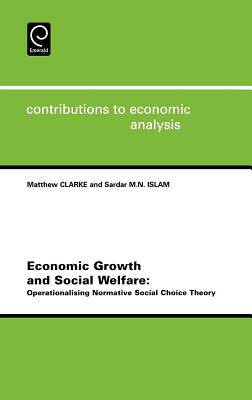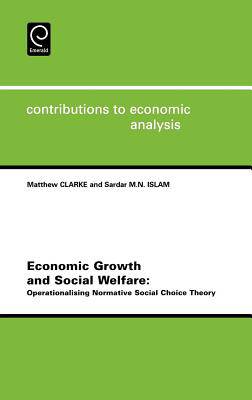
- Afhalen na 1 uur in een winkel met voorraad
- Gratis thuislevering in België vanaf € 30
- Ruim aanbod met 7 miljoen producten
- Afhalen na 1 uur in een winkel met voorraad
- Gratis thuislevering in België vanaf € 30
- Ruim aanbod met 7 miljoen producten
Zoeken
Economic Growth and Social Welfare
Operationalising Normative Social Choice Theory
€ 270,95
+ 541 punten
Omschrijving
This book studies the relationships between economic growth and social welfare and the policy implications of these relationships for development. Understanding the relationships between economic growth and social welfare is an enduring issue within contemporary development economics and welfare economics. These relationships are analysed in this book by operationalising normative social choice theory. Normative social choice theory is an appropriate approach as it explicitly incorporates society's preferences, values and choices in determining how social welfare should be defined and measured. Two approaches, aggregate and hierarchical, are developed and empirically applied to Thailand for a twenty-five year period 1975-1999. This book concludes that in terms of social welfare, economic growth cannot always be assumed desirable. What is needed is social welfare enhancing economic growth. A review of the policy implications of this finding is also undertaken.
Specificaties
Betrokkenen
- Uitgeverij:
Inhoud
- Aantal bladzijden:
- 308
- Taal:
- Engels
- Reeks:
- Reeksnummer:
- nr. 262
Eigenschappen
- Productcode (EAN):
- 9780444515650
- Verschijningsdatum:
- 18/03/2004
- Uitvoering:
- Hardcover
- Formaat:
- Genaaid
- Afmetingen:
- 164 mm x 231 mm
- Gewicht:
- 598 g

Alleen bij Standaard Boekhandel
+ 541 punten op je klantenkaart van Standaard Boekhandel
Beoordelingen
We publiceren alleen reviews die voldoen aan de voorwaarden voor reviews. Bekijk onze voorwaarden voor reviews.







